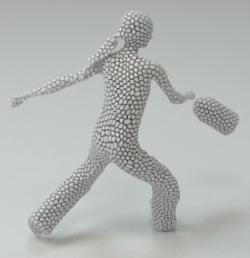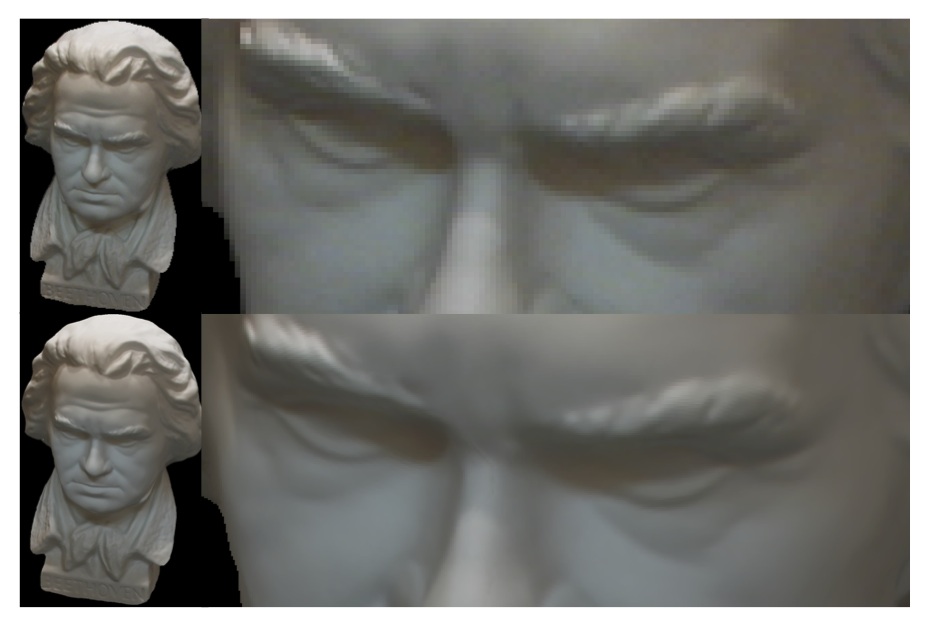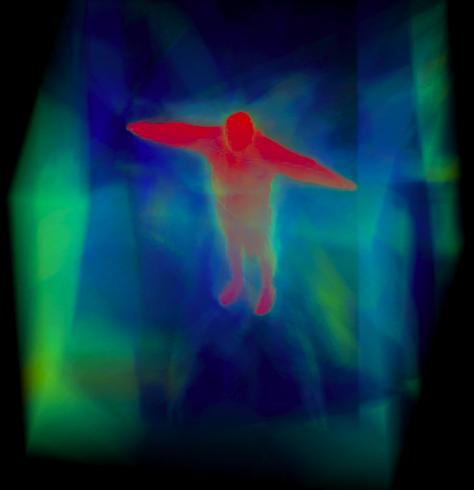Welcome
I am Senior Researcher (Directeur de Recherche) at the Centre Inria de l'Université Grenoble Alpes, France, with the Morpheo team since 2014, leading the group since 2022. I obtained my PhD from the Institut National Polytechnique de Grenoble in 2005 with the INRIA MOVI team. I started my professional career as a postdoctoral research assistant at the University of North Carolina's Computer Vision Group in 2006, and as assistant professor at the University of Bordeaux, with the IPARLA team, INRIA Bordeaux Sud-Ouest, then at Ensimag Engineering School on Computer Science and Applied Mathematics. My expertise and interest is in the field of computer vision, dynamic 3D modeling and 4D spatio-temporal modeling from multiple views, 3D interaction. Full CV available.
News
- Siggraph Asia 2024 paper accepted Millimetric Human Surface Capture in Minutes
- 3DV 2024 paper accepted Correspondence-free online human motion retargeting
- I am Senior Researcher with Inria (DR2) since October 1st, 2024.
- CVPR 2023 paper accepted, Human Body Shape Completion with Implicit Shape and Flow Learning
- CVIU 2023 article accepted, 4DHumanOutfit: a multi-subject 4D dataset of human motion sequences in varying outfits exhibiting large displacements
- December 2022: I am now group leader of the Morpheo team.
- TVCG 2022 article accepted, Mesh Denoising with Facet Graph Convolutions.
- Check out QuickCSG, our boolean computation software, here.
Research Interests
4D Temporal Alignment and Shape Tracking
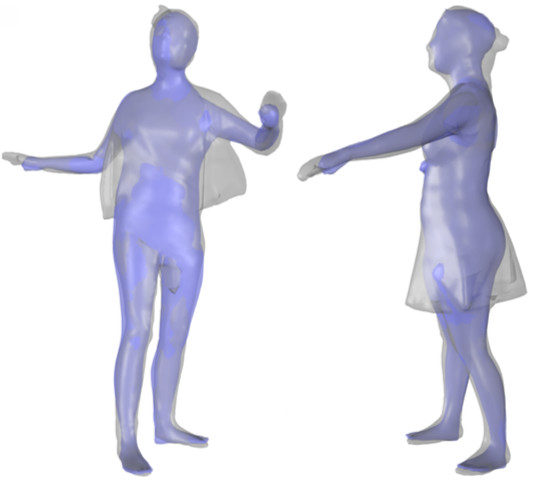
Tracking Under Clothing
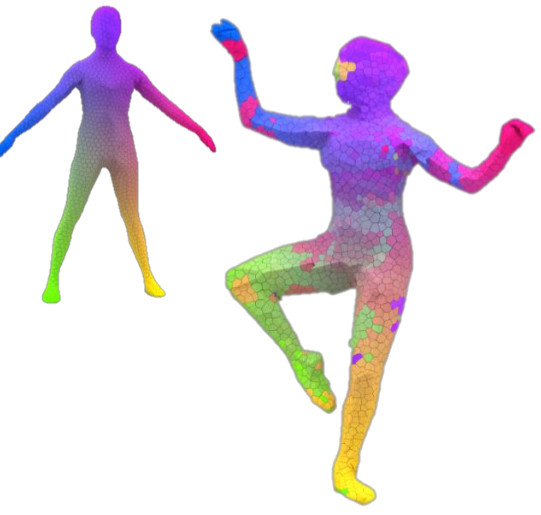
Deformable Shape Analysis
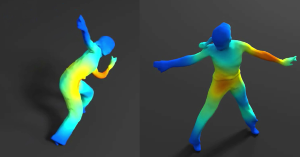
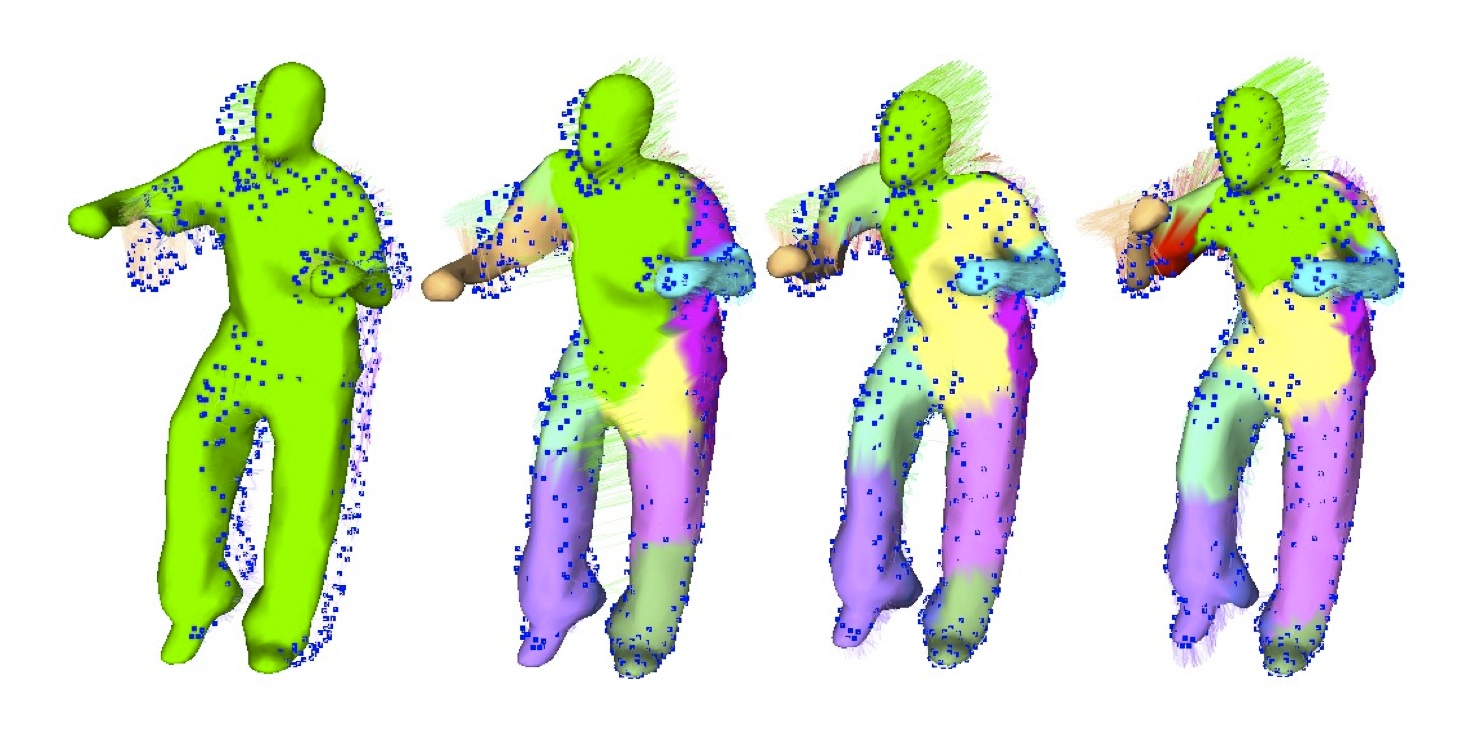
Multi-View Segmentation
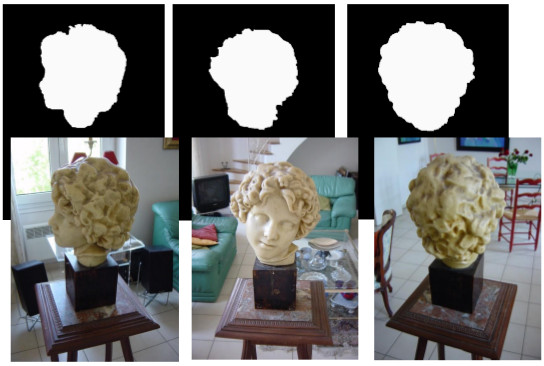
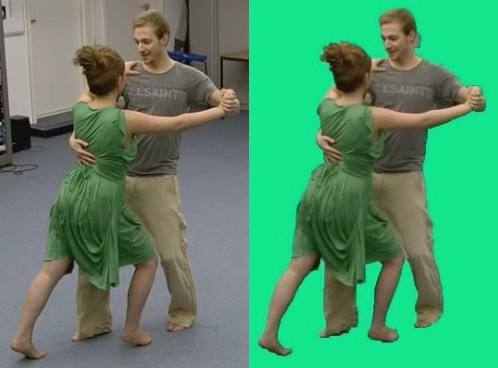
Temporal Appearance Representations and Superresolution
Fast Booleans on Meshes
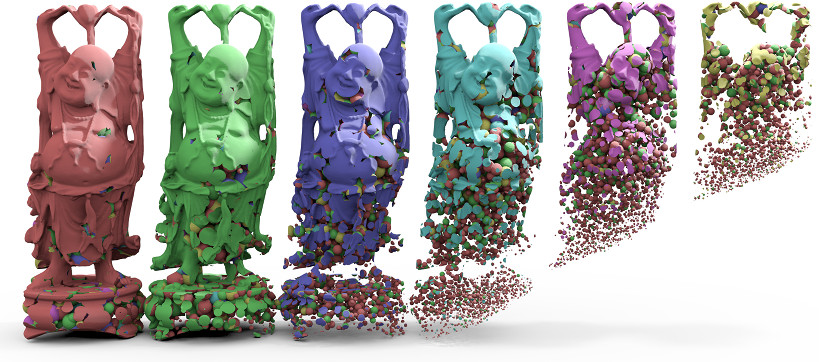
QuickCSG: Fast Variadic Polyhedral Booleans
Efficient Silhouette-based Modeling
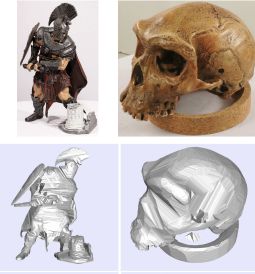

Probabilistic Occupancy Analysis

Scene Flow
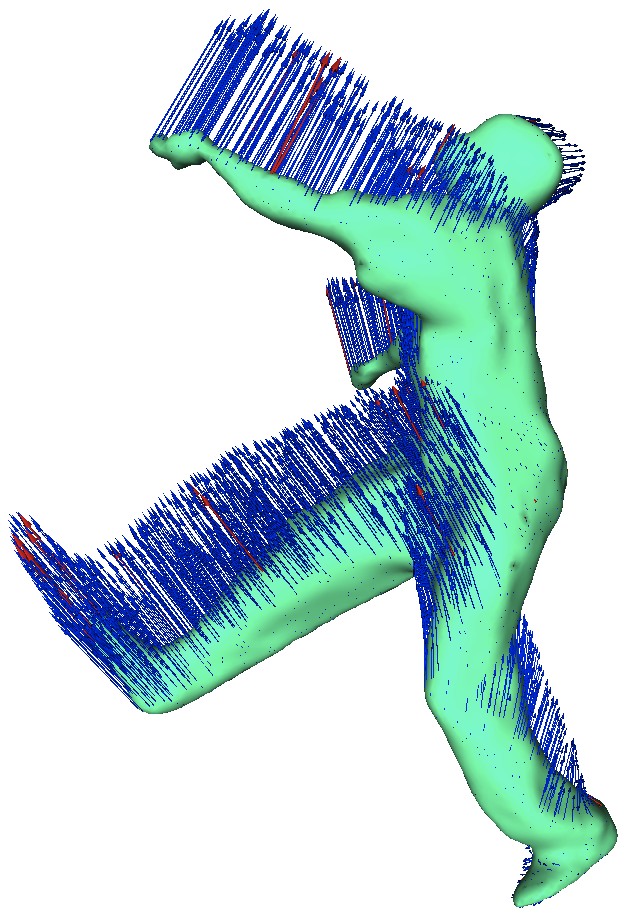
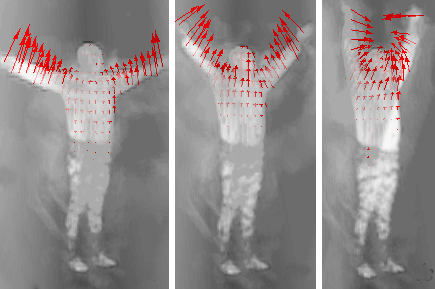
Interactive Vision Systems
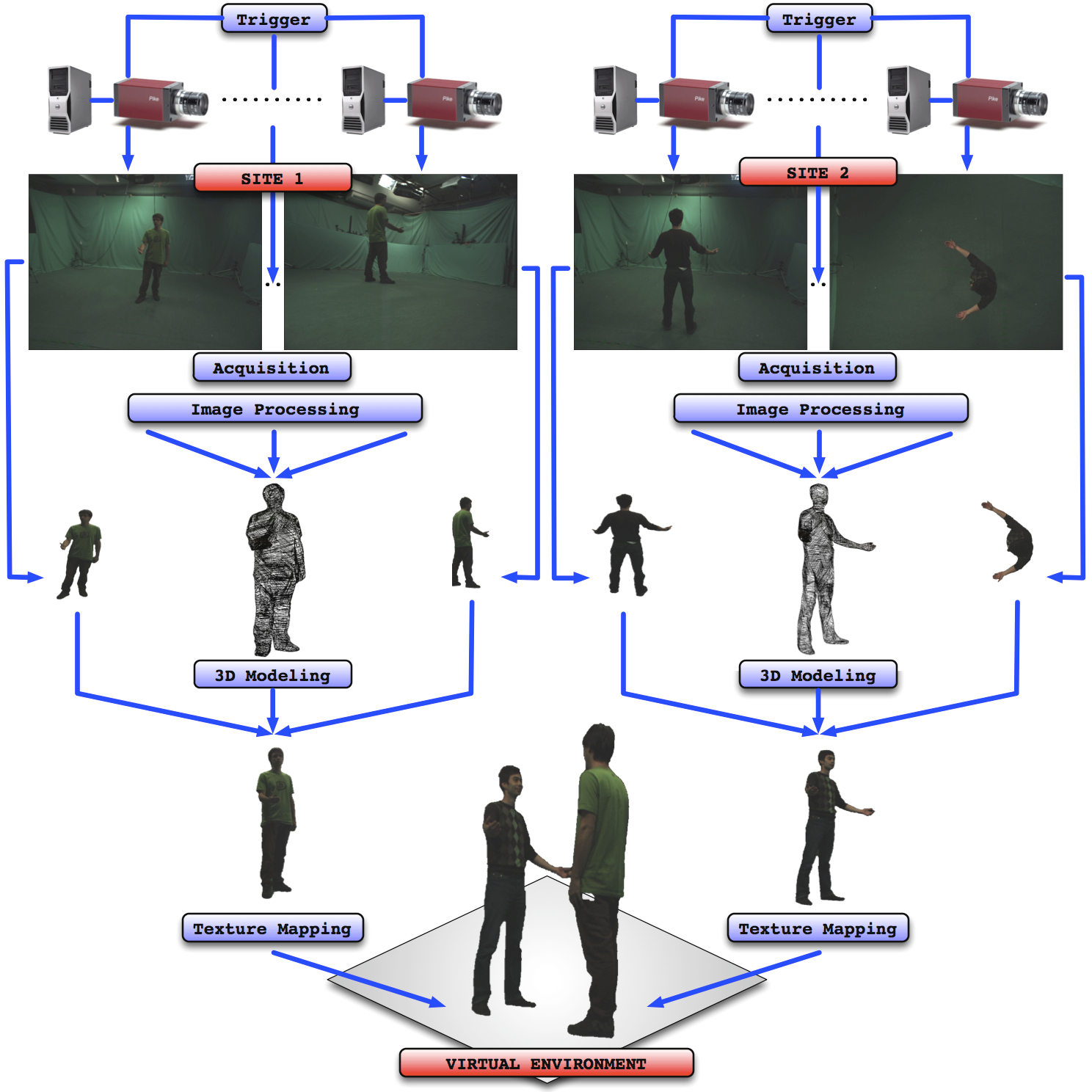
3D Telepresence with Multi-Camera Systems
QuickCSG
We are releasing binaries of our new software, QuickCSG, which can compute visual hulls as well as arbitrary boolean combinations on N polyhedral solids. Current tests on our 68-camera Kinovis platform show that QuickCSG outperforms our previous visual hull computation software EPVH by a factor of 20x on 40 cameras or more. Our experimental tests also show that QuickCSG significantly outperforms all currently known available boolean CSG codes in terms of speed on two or more inputs. A publication is currently submitted for review but a preliminary version is available as research report.
EPVH
EPVH is one of the projects developed during my thesis. I receive a number of requests for providing the code or binary. I can no longer distribute either, as EPVH is now exclusively distributed by 4DViews, and built-in 4DViews software suites. If you have datasets on which you would like to perform comparisons with EPVH for research purposes, I can process them and provide the resulting data for static objects or sequences. However, you are encouraged to use QuickCSG instead, which significantly outperforms EPVH.
